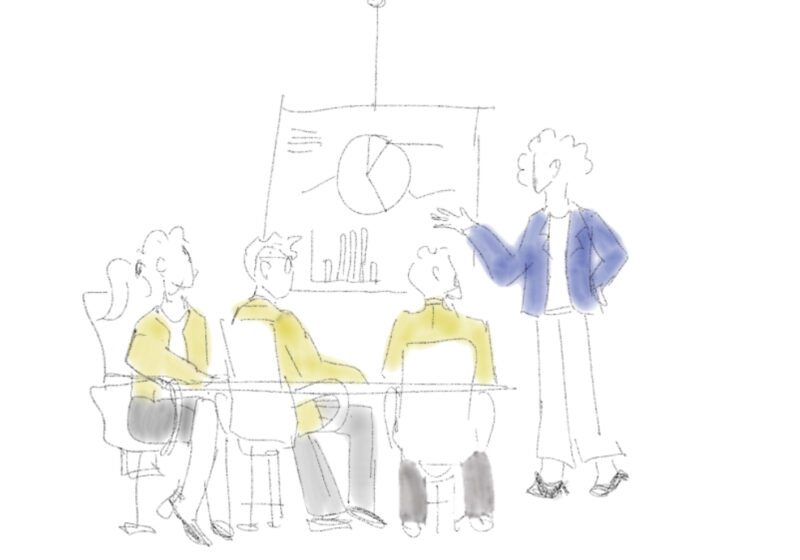As members of a liberal industrialized society, we claim to try to make everything inclusive. Instead, we find labels for those who do not fit in. The segmentation of our “inclusive” society, determined by the 51 percent, has been a labored topic for those who poet Allen Ginsberg called “the great minds” in his 1956 outburst “Howl”.
If we listen to the poem closely, we can hear Ginsberg sighing in despair at the stagnation of our social and ethical structure. The age-old adage “better late than never” is relevant here: social reform is still possible, no matter how long ago this transformative poem was published.
Here is what Ginsberg has been trying to tell us.
“I saw the best minds of my generation destroyed by madness, starving hysterical naked[.]”
Who are these best minds? Not conventional symbols of intellect highlighted in the mainstream, such as doctors, academics, or engineers. In fact, they are the drug and alcohol addicts, the bugs in the operating system of our society’s machinery.
Though some saw Ginsberg as glorifying substance addiction, he actually praises the best minds’ ability to get metaphorically naked in order to reach a state of visionary consciousness. The best minds are, in fact, the travelers who wander across America “to find out Eternity[,]” the ones beyond time as they “threw their watches off the roof to cast their ballot,” and the ones seeking eternal youth as they “thought they were growing old and cried[.]”
With “Howl,” Ginsberg redefines intelligence in a way that combines conventional with unconventional. During his career as a poet, the best minds were conventionally educated in prestigious schools, such as those who “studied Plotinus Poe St. John of the Cross telepathy and bop kabbalah.” Simultaneously, they had a vision to use their education to be timelessly creative.
Combining conventional with unconventional should alter our minds to stay dynamic. We need institutional education to have a foundation for our creativity. But in order to allow ourselves to flourish, we must combine that foundation with our personalized experiences.
Ginsberg forms avant-garde bridges between unrelated images, expanding his work’s meaning. In the line “…listening to crack of doom on the Hydrogen jukebox” Ginsberg criticizes war by presenting the 1952 U.S. Hydrogen bomb test as a jukebox announcing the end of the world to a helpless population.
In the same way Ginsberg “made incarnate gaps in Time & Space through images juxtaposed,” we should juxtapose the unrelated to create something virgin and unique.
With his particular style, Ginsberg opposed the conservative, conformist, uniform, and materialistic atmosphere of the postwar U.S. in the 1950s.
“…rejected yet confessing out the soul to conform to the rhythm of thought in his naked and endless head…”
As a gay Jewish man, Ginsberg was unafraid to protest the alienation of outcasts who failed to fit the mainstream white, Christian, straight, and “sane” profile. (A consequence of the reaffirmation of traditional social roles after the war.) Ginsberg provocatively verbalized homosexual love affairs by introducing the people who “let themselves be fucked in the ass by saintly motorcyclists, and screamed with joy[.]”
Like Ginsberg, we should not limit our thoughts, expressions, and behavior with unnecessary social and ethical filters. Ginsberg was not afraid to criticize industrial society’s pressure on the “best minds”. He wasn’t afraid to discuss how society forced some to lose “their love boys to heterosexual dollar” as they were forced to hide their identities to find a job. Ginsberg was not afraid to criticize the fact that people’s “mad” entities were seen as illnesses to be cured. Instead of “hydrotherapy psychotherapy occupational therapy,” he was ironically “demanding lobotomy” to mock the nonsensical attempt to cure the “best minds.”
Ginsberg faced backlash when his publisher was arrested on obscenity charges. However, the famous trial set a precedent for freedom of expression, when it was ruled that “Howl” was not obscene and had literary value.
With this legal validation, Ginsberg lifted the censorship and freed artists from conformist expectations.
Having unorthodox beliefs and personalities was no longer something to be ashamed of, but rather, to be celebrated.
Just as Ginsberg and the best minds “blew the suffering of America’s naked mind for love into an eli eli lamma lamma sabacthani saxophone cry[,]” we can blow the suffering of our generation and say “O victory forget your underwear we’re free”
“Holy the supernatural extra brilliant intelligent kindness of the soul!”
Ginsberg’s “Howl” teaches us the importance of vision and the rhythm of thought, the ability to express without discriminative filters. With “Howl,” we can find the courage to stand up for ourselves and others trapped by the claws of prejudice and convention. Ginsberg introduced us to a new level of self-acceptance. He gifted us with a timeless and visionary form of creativity.
Now, let’s howl his words: “Holy time in eternity holy eternity in time holy the clocks in space holy the fourth dimension… holy the visions holy the hallucinations holy the miracles… Holy forgiveness! mercy! charity! faith! Holy! Ours! bodies! suffering! magnanimity!”





